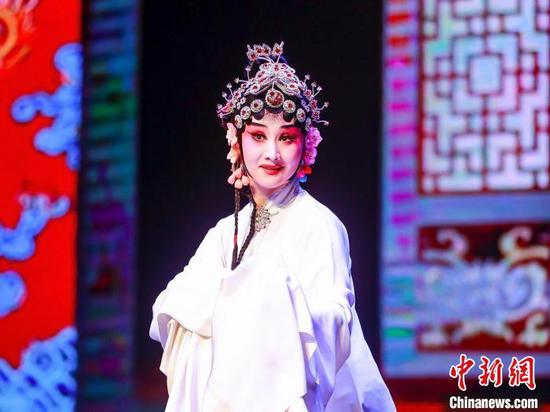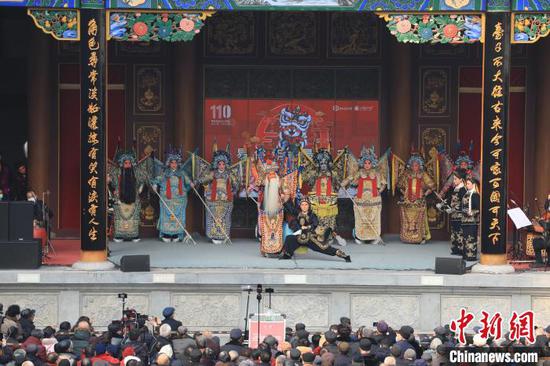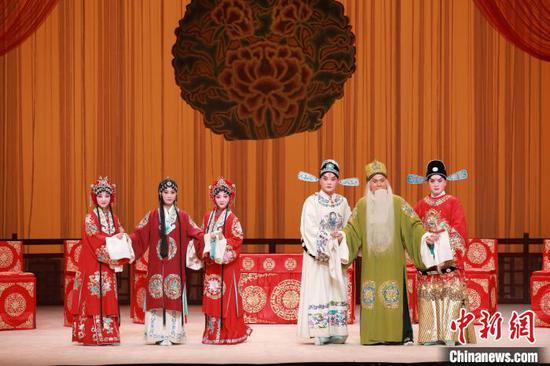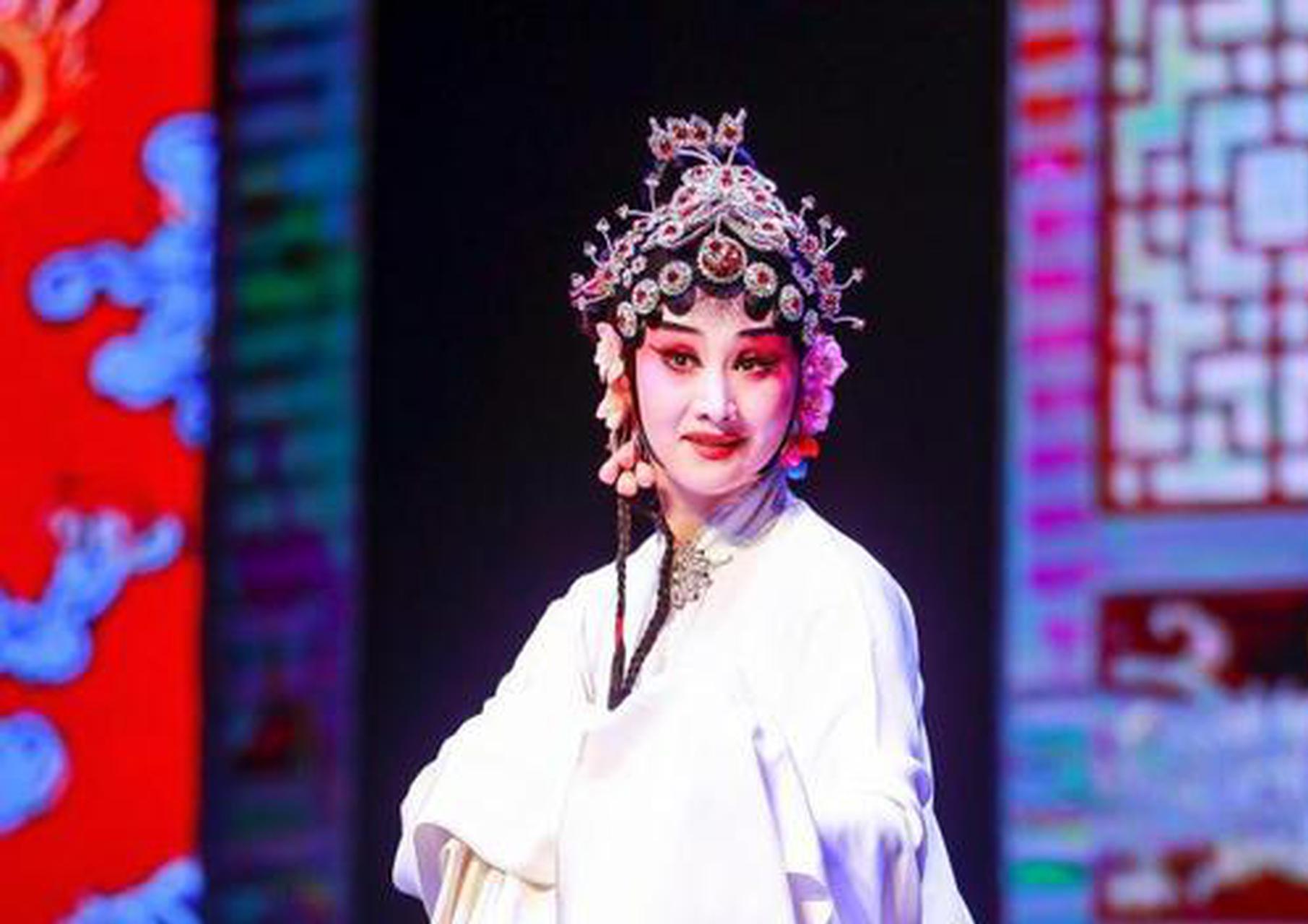Qinqiang Opera strikes new chord as Chinese rock music
(ECNS) -- A Qinqiang Opera video with over eight million views and a deluge of bullet comments has demonstrated the profound appeal of traditional Chinese opera among the younger generation.
Hailed as China's oldest rock’n’roll due to its intensive beats, dynamic rhythms and high-pitched singing style, Qinqiang Opera has its roots in the Qin Dynasty (221-206 BC).
As the most popular form of traditional opera in northwestern China, particularly in Shaanxi province, it was added to the country's intangible cultural heritage list in 2006 and continues to thrive in the vast region of Northwest China.
For people of Northwest China's Shaanxi Province, Qinqiang Opera goes beyond mere artistic expression. It isthe manifestation of their spirit.

Among the older generation of locals, being able to hum a few lines of QinqiangOpera offhand isa social trump card.
Traditional plays, such as “A Beauty Changes Horse,”“Destiny in a Cabinet,”and “Two Embroidered Dresses” are often performed during temple fairs, drawing crowds that linger for a long time.
Lu Xun, a renowned writer and revolutionary thinker of the early 20th century, wrote the dedication “Strike up the Tunes Alone,” after watching a performance. The dedication was later made into an inscription and still hangs in the lobby of Yisu Grand Theater in Xi'an, the provincial capital of Shaanxi Province.
As the oldest opera group still performing in China, the Yisu Art Troupe holds the distinction of being the Country’s first to integrate opera education and performance.
Founded in 1912, the troupe’s mission revolves around making a difference for the country by educating poor people who couldn't afford an education and conveying messages of resistance and courage in the face of adversity, which has struck a chord among generations of Chinese people.
Today, on the east side of the landmark Bell Tower in Xi'an the Yisu Art Troupe remains popular among its fans.

"We must rejuvenate this traditional art form in response to market demand," said Ji Fuji, the former president of Yisu.
"Young people crave novelty. Anything unseen is considered 'new.' Therefore, it is essential to showcase the unique charm of Qinqiang's delicate balance between literature and martial arts to captivate the younger generation," Ji said.
In recent years, different from traditional word-of-mouth promotion, Qinqiang Opera has actively embraced digital technology, pop music, animation and other art forms.
The libretto “Three Drops of Blood,” one of the best-known Qinqiang Opera pieces that shot Yisu Art Troupe to fame a century ago, was adapted into a 3D movie.
Leveraging cutting-edge cinematic techniques, Qinxiaoya, a virtual figure portraying a young female role in Qinqiang Opera, has breathed new life into the time-honored art form.
During the first China-Central Asia Summit held in May this year, the performance given by the Yisu Art Troupe celebrated the theme of the ancient Silk Road, depicting Chinese musicians performing with those from the Western Regions in the Tang Dynasty (618- 907).

"New blood is what we desperately needed in the past. Now I’m more confident about its continuation," Ji said.

